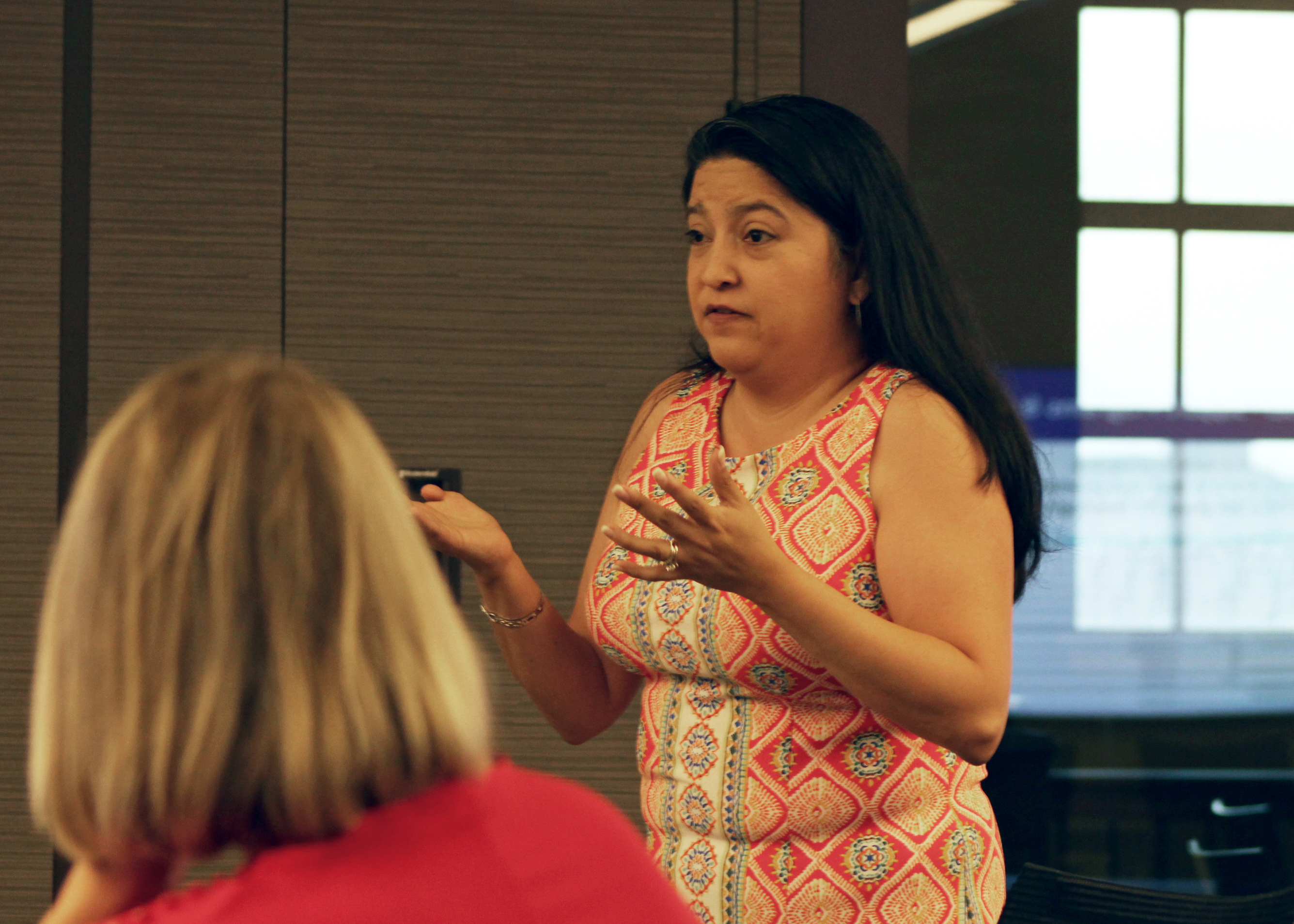Translation and Interpretation

For those with limited English skills, Dubuque can often be challenging to navigate and feel unwelcoming. Many local organizations also struggle to serve immigrant families with limited English proficiency. Contributing to these difficulties is the fact that several of the most prominently spoken languages in the region, including Marshallese and Mayan dialects, are not commonly spoken or translated in the U.S., and therefore few national and state-level resources are able to help with interpretation. This situation is not unique. Addressing needs for individuals speaking these languages has been a major difficulty for many regions across the country.
Dubuque’s ability to provide translated documents and interpretation improved in many ways during the Covid pandemic. This was because of a more concerted effort from individuals to reach out to those who have language skills. There was also a much larger recognition of a very important point: Whenever possible, people who provide interpretation or translation should be paid for their efforts. The ability to speak a different language is a valuable skill that is difficult to master, and those who have that skill should be compensated for their work.
An additional barrier has been the need for specialized translation and interpretation. Health care providers and legal organizations often utilize technical language that, if interpreted incorrectly, can cause harm to immigrant families. Many institutions require interpreters with certain training or specialization to ensure that technical terms are translated accurately.
Due to limited capacity in the region, often there are no available interpreters with the required training and certification. This means that interpretation may not meet necessary standards, and organizations (such as hospitals) may not be able to compensate community members who do provide translation. In some cases, children are relied upon to translate for their parents, a troubling reality given that it might involve important technical information or serious medical diagnoses.
Providing translation and interpretation has become more important with the arrival of new refugees from countries like Afghanistan and Ukraine; the lack of translation and interpretation services severely limits our region’s ability to engage with these new arrivals.
Recommendations
While it will be challenging to provide universally available translation and interpretation, to see some recommendations that could help create additional resources and increase the availability of translation and interpretation, click here.
Continue Reading
Use the following links to learn more about different issues facing immigrant communities:
- For Case Management, click here
- For Education and Youth Support, click here
- For Health, click here
- For Housing, click here
- For Legal Assistance, click here
- For Workforce and Employment, click here
To return to the Immigration Community Assessment welcome page, click here.
